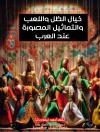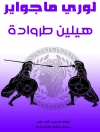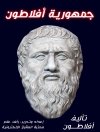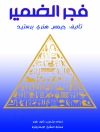This wide-ranging collection, consisting of 50 essays by leading international scholars in a variety of fields, provides an overview of the reception history of a major literary genre from Greco-Roman antiquity to the present day. Section I considers how the 5th- and 4th-century Athenian comic poets defined themselves and their plays, especially in relation to other major literary forms. It then moves on to the Roman world and to the reception of Greek comedy there in art and literature. Section II deals with the European reception of Greek and Roman comedy in the Medieval, Renaissance, and Early Modern periods, and with the European stage tradition of comic theater more generally. Section III treats the handling of Greco-Roman comedy in the modern world, with attention not just to literary translations and stage-productions, but to more modern media such as radio and film. The collection will be of interest to students of ancient comedy as well as to all those concerned with how literary and theatrical traditions are passed on from one time and place to another, and adapted to meet local conditions and concerns.
Tabela de Conteúdo
ANCIENT COMEDY AND RECEPTION:
ESSAYS IN HONOR OF JEFFREY HENDERSON
Foreword
S. Douglas Olson
Ancient Comedy and Receptions
1. Exchanging Metaphors in Cratinus and Aristophanes
Zachary P. Biles, Franklin and Marshall College
2. Comic Parrhêsia and the Paradoxes of Repression
Ralph M. Rosen, University of Pennsylvania
3. Slipping One In: The Introduction of Obscene Lexical Items in Aristophanes
James Robson, Open University
4. Ancient Comedy and Historiography: Aristophanes Meets Herodotus
Heinz-Günther Nesselrath, University of Göttingen
5. Epiphany of a Serious Dionysus in a Comedy?
Oliver Taplin, Oxford University
6. Toponimi e immaginario sessuale nella Lisistrata di Aristofane
Giuseppe Mastromarco, Università degli Studi di Bari
7. Dionysus’ Choice in Frogs and Aristophanes’ Paraenetic Pedigree
Mark Alonge, Independent Scholar
8. Two Phaedras: Euripides and Aristophanes?
J.R. Green, University of Sydney/Institute of Classical Studies, University of London
9. Plato’s Aristophanes
Charles Platter, University of Georgia
10. Menander’s Samia and the Phaedra Theme
Alan H. Sommerstein, University of Nottingham
11. Dynamics of Appropriation in Roman Comedy: Menander’s Kolax in Three Roman Receptions (Naevius, Plautus and Terence’s Eunuchus)
Michael Fontaine, Cornell University
12. Libera lingua loquemur ludis Liberalibus. Gnaeus Naevius as a Latin Aristophanes?
Simone Beta, Università di Siena
13. Plautus und die Techniken des Improvisationstheaters
Eckard Lefèvre, Albert-Ludwigs-Universität
14. Lege dura vivont mulieres: Syra’s Complaint about the Sexual Double Standard
(Plautus Merc. 817-29)
Boris Dunsch, Philipps-Universität Marburg
15. ‘Letting It All Hang Out’: Lucian, Old Comedy and the Origins of Roman Satire
Keith Sidwell, University of Calgary
16. Old Comedy at Rome: Rhetorical Model and Satirical Problem
Ian Ruffell, University of Glasgow
17. Inventing Everything: Comic and Performative Sources of Graeco-Roman Fiction
Niall W. Slater, Emory University
18. From Drama to Narrative: The Reception of Comedy in the Ancient Novel
Steven D. Smith, Hofstra University
19. Greek Culture as Images: Menander’s Comedies and Their Patrons in the Roman West and the Greek East
Sebastiana Nervegna, University of Sydney
20. The Evidence of the Zeugma Synaristosai Mosaic for Imperial Performance of Menander
Niall W. Slater, Emory University
Medieval, Renaissance and Early Modern Receptions
21. Medieval Vernacular Versions of Antique Comedy: Geoffrey Chaucer, Eustache Deschamps, Vitalis of Blois and Plautus’ Amphitryon
Laura Kendrick, Université de Versailles
22. Aristofane mascherato. Un secolo (1415-1504) di fortuna e ‘sfortuna’
Ludovica Radif, Università di Genova
23. L’influence de Plaute sur la définition du comique chez Giovanni Pontano
Hélène Casanova-Robin, Université Paris-Sorbonne (Paris IV)
24. Strepsiades’ Latin Voice: Two Renaissance Translations of Aristophanes’ Clouds
John Nassichuk, University of Western Ontario
25. The Trickster Onstage: The Cunning Slave from Plautus to Commedia dell’Arte
Francesca Schironi, University of Michigan
26. Aristophanes in England, 1500-1660
Robert S. Miola, Loyola University in Maryland
27. Exaggerating Terence’s Andria: Steele’s The Conscious Lovers, Bellamy’s The Perjur’d Devotee and Terentian Criticism
Maik Goth, Ruhr-Universität Bochum
28. Roman Comedy and Renaissance Revenge Drama: Titus Andronicus as Exemplary Text
Adele Scafuro, Brown University
29. Molière and the Roman Comic Tradition
†Philip Ford, Clare College, Cambridge
30. Jacob Masen’s Rusticus imperans (1657) and Ancient Theater
Gesine Manuwald, University College London
31. La recepción de Plauto y Terencio en la literatura española
Benjamín García-Hernández, Rosario López Gregoris y Carmen González-Vázquez,
Universidad Autónoma de Madrid
32. Reform: A Farce Modernised from Aristophanes (1792)
Robert Tordoff, York University
Modern Receptions
33. Polos und Polis: Aristophanes? Vögel und deren Bearbeitung durch Goethe, Karl Kraus und Peter Hacks
Bernhard Greiner, Universität Tübingen
34. Translations of Aristophanes in Italy in the 19th Century
Maria Luisa Chirico, Seconda Università degli Studi di Napoli
35. Close Encounters of the Comic Kind: Aristophanes’ Frogs and Lysistrata in Athenian Mythological Burlesque of the 1880s
Gonda Van Steen, University of Florida
36. Rodgers and Hart’s The Boys from Syracuse: Shakespeare Made Plautine
Timothy J. Moore, University of Texas at Austin
37. She (Don’t) Gotta Have It: African-American Reception of Lysistrata
Kevin J. Wetmore, Jr., Loyola Marymount University
38. ‘Es ist, um aus der Rüstung zu fahren!’: Erich Kästners Adaption der Acharner des Aristophanes
Peter v. Möllendorff, Justus-Liebig-Universität Gießen
39. Lysistrata on Broadway
Marina Kotzamani, University of the Peloponnese
40. ‘Attend, O Muse, Our Holy Dances and Come to Rejoice in Our Songs’: The Reception of Aristophanes in the Modern Musical Theater
Simone Beta, Università di Siena
41. Aristophanes at the BBC, 1940s-1960s
Amanda Wrigley, University of Westminster
42. Cultural Politics and Aesthetic Debate in Two Modern Versions of Aristophanes’ Frogs
Graham Ley, University of Exeter
43. Ionesco’s New and Old Comedy
David Konstan, New York University
44. Aristophanes in the Cinema; or, the Metamorphoses of Lysistrata
Martin M. Winkler, George Mason University
45. Who’s Afraid of Aristophanes? The Troubled Life of Ancient Comedy in 20th-Century Italy
Martina Treu, IULM – Libera Università di Lingue e Comunicazione, Milan
46. Aristophanes in Israel: Comedy, Theatricality, Politics
Nurit Yaari, Tel Aviv University
47. Culture, Education and Politics: Greek and Roman Comedy in Afrikaans
Betine van Zyl Smit, University of Nottingham
48. The Maculate Muse in the 21st Century: Recent Adaptations of Aristophanes’ Peace and Ecclesiazusae
Elizabeth Scharffenberger, Columbia University
49. Eschyle et Euripide entre tragédie et comédie : polyphonie et interprétation dans quelques traductions récentes des Grenouilles d’Aristophane
Ariane Eissen, Université de Poitiers
Myrto Gondicas, freelance translator
50. Business as Usual: Plautus’ Menaechmi in English Translation
J. Michael Walton, University of Hull
Sobre o autor
S. Douglas Olson, University of Minnesota, Minneapolis, MN, USA/University of Freiburg, Breisgau, Germany.












